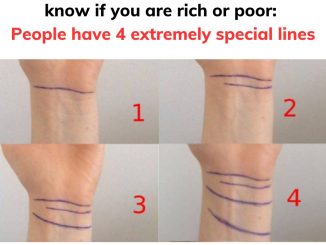Sahar Tabar, an Iranian social media personality, became a global sensation due to her shocking physical transformation and resemblance to Hollywood star Angelina Jolie. Her journey, marked by extreme changes to her appearance, sparked both fascination and controversy. From her rise to Instagram fame to her legal troubles, Tabar’s story has drawn attention worldwide, leaving many to question the fine line between personal expression and societal influence.

The Radical Transformation: From Sahar Tabar to “Zombie Angelina”
At the age of 19, Sahar Tabar reportedly underwent more than 50 plastic surgeries to alter her appearance. Although she never explicitly declared that she wanted to look like Angelina Jolie, many of her fans and followers drew parallels between her look and the famous actress. With gaunt cheekbones, exaggerated lips, and a dramatically altered nose, her appearance was undeniably extreme, earning her the nickname “Zombie Angelina” on social media.
However, there is a lingering debate about the authenticity of her transformation. While some reports suggest she underwent a myriad of cosmetic surgeries, others argue that Tabar may have heavily edited her photos using digital manipulation to achieve the haunting, doll-like features that made her infamous. Whether real or edited, her shocking transformation became the subject of endless speculation.
Social Media Fame and Controversy
Tabar’s transformation was propelled into the public eye primarily through Instagram, where she quickly amassed nearly four million followers under the handle @sahartabarofficial. She regularly posted images showcasing her altered face and outlandish makeup, further fueling the curiosity of social media users. Her account became a hub for those intrigued by her bizarre appearance, and she soon gained a cult following.
Despite her online fame, not everyone was impressed. Critics questioned her mental health, while others expressed concern over the negative influence her appearance could have on young followers. Many saw her as a symbol of the dangers of extreme beauty standards and the lengths people might go to in order to achieve a certain look. This sparked heated debates about body image, social media’s role in shaping public perceptions of beauty, and the ethics of plastic surgery.
The Arrest and Legal Fallout
In October 2019, Sahar Tabar’s online fame took a dark turn when she was arrested by Iranian authorities. She was accused of multiple charges, including blasphemy, inciting violence, illegal acquisition of property, and corrupting young people through her social media content. In a country with strict moral and legal codes, her provocative posts and unconventional appearance were deemed unacceptable.
One of the most severe accusations against her was violating the country’s dress code for women, which mandates modest clothing. Her bold and eccentric photos clashed with the conservative norms enforced in Iran, making her a target for government crackdowns on social media influencers.

The legal repercussions were harsh. Tabar was sentenced to 10 years in prison, and she was incarcerated in Qarchak, a notorious women’s prison known for its deplorable conditions. Her case became a global talking point, raising questions about free speech, artistic expression, and the power dynamics in conservative societies like Iran.
Public Reaction: A Divisive Figure
Sahar Tabar’s story stirred intense reactions. Many viewed her as a victim of societal pressures to conform to beauty standards, while others criticized her for taking such extreme measures to alter her appearance. Despite the heavy criticism, Tabar herself maintained that her appearance was a form of self-expression, describing it as art rather than an attempt to mimic Angelina Jolie.
In an interview with the Russian website Sputnik, she clarified that she never intended to fully resemble Jolie. She stated that her look was intentionally exaggerated and that her followers were aware of the difference between her real appearance and the distorted images she shared online.
The conversation surrounding Tabar’s transformation also touched on the darker side of social media fame. Some argued that platforms like Instagram, with their emphasis on appearances, encourage users to take drastic and sometimes dangerous steps to gain attention and approval. Her case highlighted how the pursuit of online validation can have real-world consequences.
The Role of Activism in Tabar’s Case
Tabar’s imprisonment garnered international attention, with human rights activists speaking out against her treatment. One such activist, Masih Alinejad, used her platform to call for Sahar Tabar’s release and implored Angelina Jolie to speak up about the case. Alinejad’s efforts were part of a broader movement advocating for justice and human rights in Iran, especially for women who face legal consequences for defying the country’s strict codes of behavior.

After spending 14 months in prison, Tabar was eventually released, thanks in part to the activism surrounding her case. However, her time behind bars highlighted the ongoing struggles faced by Iranian women who challenge traditional norms and push the boundaries of societal expectations.
The Impact and Legacy of Sahar Tabar
Sahar Tabar’s controversial transformation remains a symbol of the complex relationship between beauty standards, social media, and personal expression. Her story, while shocking, sheds light on the lengths individuals may go to in pursuit of societal validation, the power of social media to shape identity, and the very real consequences of defying cultural norms in restrictive societies.
Although she initially gained attention for her extreme appearance, Tabar’s story now serves as a cautionary tale about the risks of becoming consumed by social media fame and the dangerous intersections of personal expression and authoritarian rule. Her release marked the end of one chapter but left lingering questions about the influence of modern beauty culture and the societal pressures that drive individuals toward drastic self-alteration.
Conclusion
Sahar Tabar’s journey from a viral sensation to a prison inmate underscores the complicated dynamics of fame, beauty, and societal expectations. While her transformation may have initially seemed like an attempt at self-expression, it ultimately led to a clash with Iran’s rigid legal and cultural standards. Her story serves as both a reflection of the modern obsession with appearance and a stark reminder of the challenges that come with defying societal norms.
As the world continues to debate the implications of her actions and the treatment she received, one thing remains clear: Sahar Tabar’s transformation will continue to spark conversations about personal identity, the impact of social media, and the power of expression in the face of cultural constraints.


